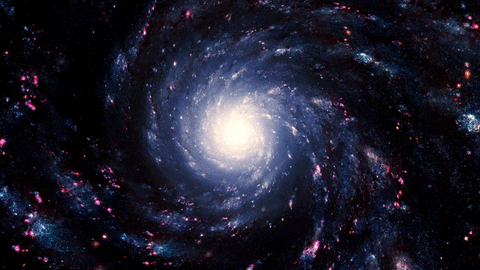- Alan Watts believed that we can comprehend a greater sense of the self.
- The self is not alienated from the universe, but a part of the whole process.
- Scientists have conceptualized a similar idea that sounds like it’s straight out of the Indian Vedanta.
Western cultures rooted in scientific thinking and reductionist philosophies have always flirted with the tempting holism of the East. It was during the 1950s and ’60s that these philosophies finally burst through the dividing cultural membrane and finally became a permanent fixture in our culture. Alan Watts was one such philosopher and lecturer of the time that is largely responsible for this popularization of Eastern spiritual ideas.
Whether it was on the way we view education or money — Watts masterfully weaved a synthesis of ancient Eastern philosophy to contend with and understand our chaotic mode of modern life.
One such topic that he touched upon at length was the idea of the self. Many great philosophers have pondered on this great question — what is the self? It is within this sphere of questioning that Watts proposed that all roads of inquiry lead to one central idea, even if they’re not aware of it. That the self is an illusion, all is inseparable and part of a continuous wave of existence from beginning to end and back again.
… the prevalent sensation of oneself as a separate ego enclosed in a bag of skin is a hallucination which accords neither with Western science nor with the experimental philosophy-religions of the East.
Alan Watts and the self
Alan Watts touched upon this subject at length in a talk titled “Self and Other.” Watts believed that we could shed the illusion of self and other through simple comprehension. No need for any difficult yoga meditations or even mind-shattering psychedelics.
It is plain to see that in our modern civilization many people lack meaning. As the scientific method has unraveled old mysteries and religions have lost their hold on ontological truth, there is no longer a binding authority to look toward for guidance on the nature of reality.
Great existentialist thinkers heralded this onslaught of meaning in the past two centuries. Science offers us no solace with its nihilistic undertones of blind chance and our supposed infinitesimal place in an infinite and indifferent universe. But the very act of our being is testament to the fact that we are more than a separate entity that is a stranger to this universe, but the whole meaning and process of it. As Watts once mused about the future, “It’s going to become basic common sense that you are not some alien being who confronts an external world that is not you, but that almost every intelligent person will have the feeling of being an activity of the entire universe.”
There is a prevailing concept endemic to modern cosmology that proposes that life is some kind of cosmic accident. That it’s a rarity, an aberration or seen in a sometimes more positive light — a miracle.
Now in the Eastern view and especially in the view that Watts espouses, everything has led up to this point, but not in some kind of planned monarchical clockwork godlike guidance. It simply has come to be. All of the universal processes — from gravitational pulls from one galaxy to the next down to the starlight of our sun to the multiplicitous iterations of conscious life — are one interconnected process and, in a sense, one being.
“You see, if you become aware of the fact that you are all of your own body, and that the beating of your heart is not just something that happens to you, but something you’re doing, then you become aware also in the same moment and at the same time that you’re not only beating your heart, but that you are shining the sun.”
We come to realize then that self cannot be defined. That we are interdependent on others to define ourselves socially, physically, and spiritually just as we are also the sum total of our environment, genetic makeup, and all matter-bound activities in the universe right down to the beginning of existence.
“In other words, let’s suppose that those cosmologists and astronomers are right who believe that this universe started out with an original Big Bang, which flung all those galaxies out into space. It’s a continuous energy system. The energy which is now manifested as your body is the same energy which was there in the beginning. If anything at all is old, this hand is as old as anything there is. Incredibly ancient. I mean, the energy keeps changing shapes, doing all sorts of things, but there it all is.”
Watts philosophical argument is compelling when integrated into our current understanding of the universe. Some modern day scientists are even conceding the point that was made thousands of years ago by early Hindu and Buddhist philosophies.
Scientific theory on universal consciousness
For instance, the late scientist and philosopher John Archibald Wheeler remarked that every single piece of matter contained consciousness, which he believed made up a proto-consciousness field. The theory eventually was called “participatory anthropic principle,” which explains how the human observer is a fundamental part of the process. He stated, “We are participators in bringing into being not only the near and here but the far away and long ago.”
Some modern day scientists are taking this one step forward in the only way they know how and thinking about testing for observational evidence of consciousness transmitted through a quantum vacuum. Another name for this phenomenon is called panpsychism.
Perhaps we are the Brahmin who has forget itself. As the ancient Hindu scriptures once believed that we are the soul breath of Atman. The self as the cosmos and the cosmos as the self to experience itself.






